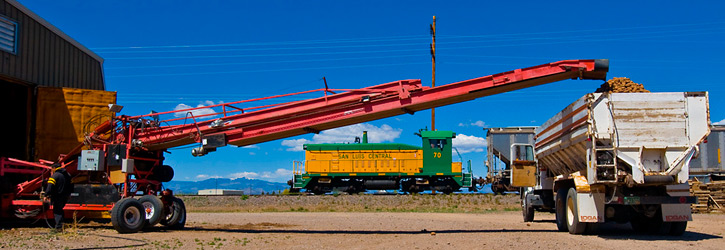
Transloading Financial & Business Planning
The bulk products moved by railroads often originate from or are destined to locations beyond the rails. The process of transferring, or transloading, these products between rail and another mode of transportation is a critical component of railroads and freight customers’ success. RLBA provides comprehensive transloading analysis services, conducting the necessary planning and feasibility studies for a transload operation while also providing expertise in demand assessment, capital costing analysis and business planning.
Select Projects Descriptions
JERSEY CITY, NJ:
RLBA was contracted by the City of Jersey City, NJ to investigate the preliminary feasibility of restoring freight rail service along a portion of right of way which formerly served as the Pennsylvania Railroad’s Harsimus Branch. RLBA sent a railroad marketing expert to conduct an on-site inspection of the proposed corridor to determine the feasibility of constructing a transload facility, as well as to conduct interviews of potential customers of the proposed line to determine quantities and revenues a restored line might generate.
In addition, an RLBA civil engineer traveled on-site to inspect the corridor and estimate the capital cost required to restore service to the Harsimus Branch, as well as the annual cost to maintain an activated line.
A deliverable from RLBA to Jersey City included preliminary projections of volumes and revenues the line could be expected to generate were the Harsimus Branch restored, in addition to capital and maintenance costs of the proposed restoration.
N.C.I. STORAGE, LLC:
RLBA was engaged by N.C.I. Storage, LLC (NCI), a subsidiary of Dallas based NextBank Corporation and the Palestine Economic Development Corporation (PEDC) to perform a detailed preliminary feasibility study to help determine the viability of converting land adjacent to the Texas State Railroad Museum track in Palestine, Texas into a rail / truck transload facility. RLBA performed three distinct tasks as part of its engagement, it:
- determined the purpose and need of a transload facility in Palestine;
- reviewed a preliminary operating cost model developed by NCI; and
- interviewed top tier, potential customers. RLBA staff began the study by locating all transload facilities within 250 miles of Palestine.
RLBA then began a high-level analysis to determine whether commodities suitable to transloading originated or terminated in the vicinity of Palestine, reviewed the proposed operating costs model created by NCI and provided comments as to its accuracy. The final and most labor intensive task involved working with PEDC and NCI to identify top-tier, prospective customers and interviewing representatives of those organizations to determine the likelihood that they would utilize a rail transload facility.
Building on information available through the PEDC, RLBA created a shortlist of a few dozen companies and performed high level screening and detailed interviews of shortlisted targets approved by the client. RLBA worked closely with NCI and PEDC staff to identify three serious potential transload users and put them in touch with NCI to facilitate “next step” development.
